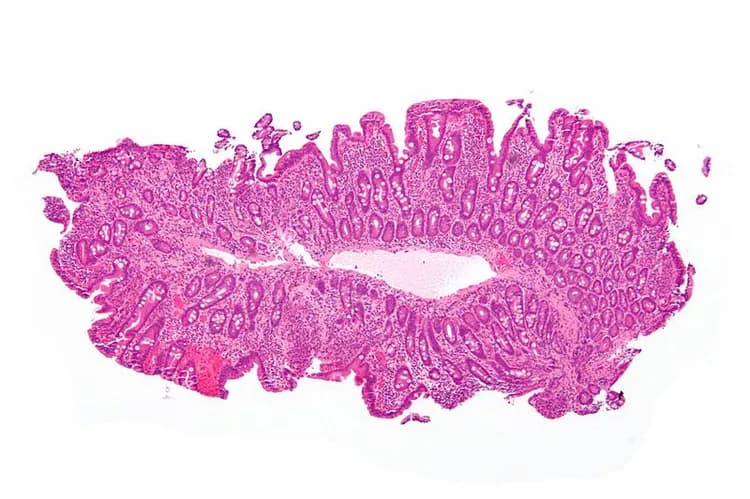The amount of gluten could be a more important clue than breast-feeding or the timing of the introduction of gluten for continued research into the causes of celiac disease (gluten intolerance). This is one of the findings from several extensive studies of children with an increased genetic risk of celiac disease conducted by researchers at Lund University in Sweden.
Sweden is a high-risk country for the development of celiac disease in early life. Currently, the only known and effective treatment for the disease is for patients to follow a gluten-free diet for the rest of their lives. It is still unclear why gluten intolerance occurs, but researchers all over the world have long focused their efforts on factors such as breast-feeding, dietary habits, the timing of the introduction of gluten and geographical origin. A new doctoral thesis from Lund University includes studies covering all these aspects.
"Our findings indicate that the amount of gluten triggers the disease. We have also observed that the dietary habits among the children we studied vary from one country to another, and that there are reasons to analyse the significance of this variation more closely. More in-depth studies could perhaps contribute to explaining why Swedish children develop celiac disease earlier than children in other countries," says Carin Andrén Aronsson, a dietician and doctoral student at Lund University, continuing:
"The timing of the introduction of gluten, on the other hand, does not seem to be of great significance. We conducted a very extensive study which confirms similar conclusions from previous, smaller studies."
All the research in the doctoral thesis is based on small children born with an increased genetic risk of developing celiac disease. Some of the most important conclusions are:
- Swedish children whose reported daily intake of gluten was high (more than five grams) up to the age of two years had twice the risk of developing coeliac disease compared to children who consumed a smaller amount. The results from the same sub-study also show that children with celiac disease ate more gluten.
- The risk of developing the autoimmunity which gives rise to celiac disease was highest in Sweden compared to the other countries in the study (Finland, Germany and USA). The result held after adjustment for some of the most important causes of celiac disease (carrying the risk gene, previous diagnosis in the family and gender).
- Breast-feeding (starting point/duration), the timing of the first introduction of solid foods and the type of diet varied among the countries studied. European children were first introduced to potatoes and root vegetables while American children were first given rice and root vegetables. There was no apparent connection between the duration of the period of breast-feeding and the risk of developing celiac disease.
- The timing alone of the introduction of gluten in the diet is not an independent risk factor for subsequent development of gluten intolerance.
The issues surrounding gluten intolerance will continue to occupy Carin Andrén Aronsson after the public defence of her thesis.
"We will investigate the significance of the amount of gluten in a large new study. Is the gluten intake of Swedish children different from that of children in other countries? We will expand the study with children from the other participant countries and increase the follow-up period in comparison with our previous studies, from two to five years. We will also investigate whether the addition of probiotics (beneficial bacteria) to the diet has any effect on the risk of developing celiac disease," explains Carin Andrén Aronsson, before adding:
"With more knowledge about the significance of diet, I hope it will become possible to personalise the diet instead of having general dietary guidelines as we have today."
The basis for the studies in the doctoral thesis is a cohort of up to 8 700 children in four countries: Sweden, Finland, Germany and the USA. The children are part of an international research project, TEDDY (The Environmental Determinants of Diabetes in the Young), whose aim is to determine the reasons why children get type 1 diabetes and/or coeliac disease. The principal funding body behind the study is the National Institutes of Health,(NIH) in the US.
"It is a very major and resource-intensive endeavour to determine the causes of celiac disease. Thanks to the children in the TEDDY study, we can conduct several studies of significance to research," explains Carin Andrén Aronsson.
Carin Andrén Aronsson from Lund University's Department of Clinical Sciences in Malmö will publicly defend her thesis "Infant Feeding Practices and the Risk of Coeliac Disease" on 23 September 2016.
Materials provided by Lund University. Note: Content may be edited for style and length.
Disclaimer: DoveMed is not responsible for the adapted accuracy of news releases posted to DoveMed by contributing universities and institutions.
Related Articles
Test Your Knowledge
Asked by users
Related Centers
Related Specialties
Related Physicians
Related Procedures
Related Resources
Join DoveHubs
and connect with fellow professionals


0 Comments
Please log in to post a comment.